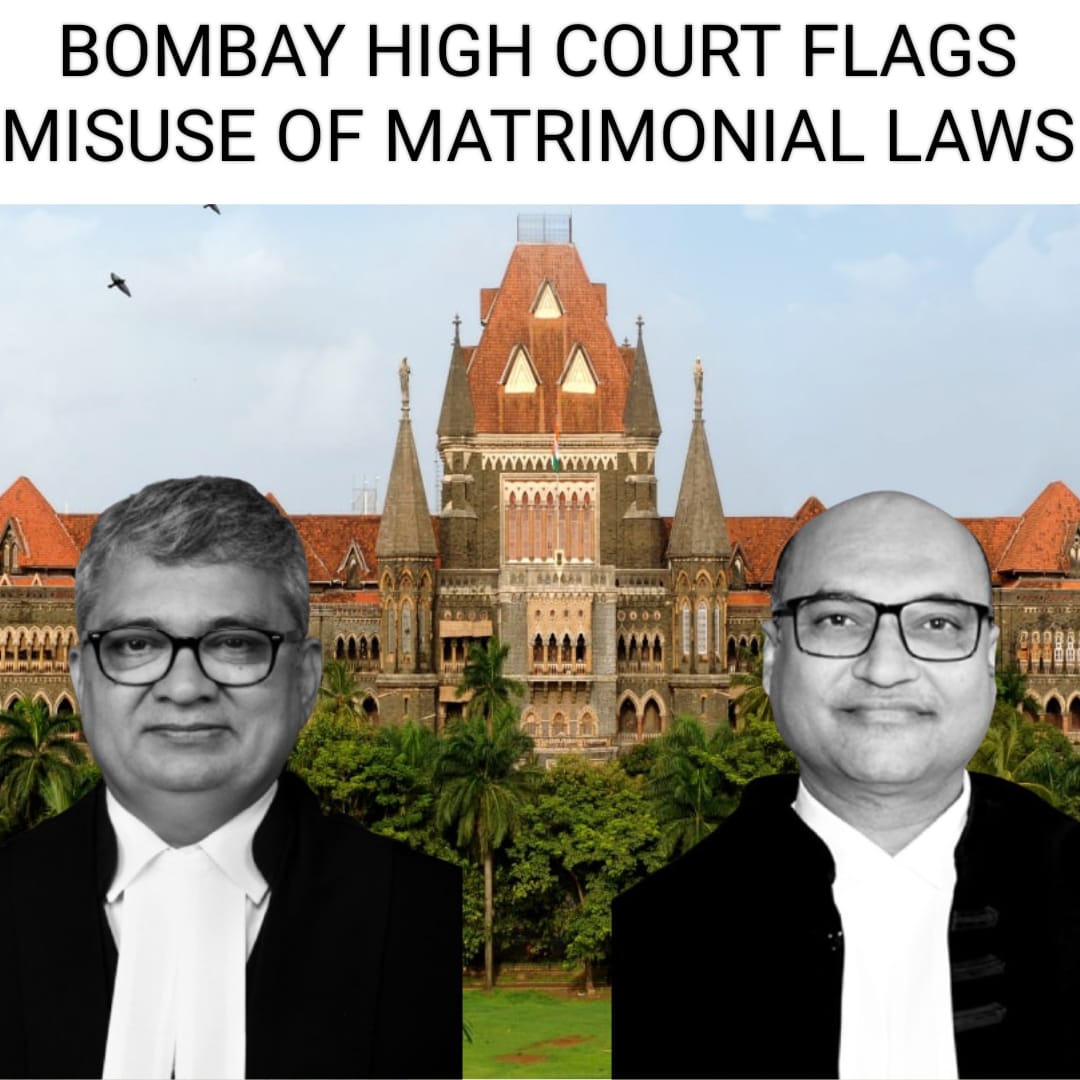INTRODUCTION
Recently, the Nagpur bench of the honorable Bombay High Court has quashed a criminal case involving serious charges of cruelty, unnatural sex, and dowry harassment and flagged the constantly increasing number of matrimonial disputes and explained the court’s role in handling such cases in a more peaceful and efficient manner(ARP v State of Maharashtra).
CONTEXT OF THE JUDGEMENT
A division bench which comprised of Justices Nitin W. Sambre and M.M. Nerlikar in an order which dated July 8,2025 and made available on July 15, 2025, heard and allowed the quashing of FIR registered at Beltarodi Police Station, Nagpur, under Sections 498-A, 377 read with 34 of the Indian Penal Code and Sections 3 and 4 of the Dowry Prohibition Act against a group of applicants.
The case was levelled by a woman whose marriage was solemnized with her husband, one of the applicants, on May 15,2023. The woman had lodged a First Information Report (FIR) against her husband, two sisters of her husband and her husband’s maternal aunt, alleging for physical and mental cruelty, sexual assault through the means of unnatural sex, dowry harassment and digital intrusion of her privacy. After the commencement of the proceedings, a settlement was reached, the parties obtained a divorce from mutual consent on July 1, 2025. The complainant also filed an affidavit before the honorable High Court stating and appeared before the court to confirm her consent to quash the criminal proceedings.
“We are experiencing that, Legislation intended to improve marital relationships, such as the Domestic Violence Act, the Hindu Marriage Act and the Special Marriage Act etc., are frequently misused by parties, resulting in multiplicity of litigation, that not only burdens the Court, but, also cause mental as well as physical harassment, endless conflict, financial loss and irreversible harm to children and other family members.”
WHAT DID THE COURT OBSERVED?
“We are of the opinion that matrimonial disputes, if re-union is not possible, shall be put to an end as early as possible otherwise the life of persons will be ruined, if it is permitted to go on and would be violative of Article 21 of the Constitution of India,” the court said. The bench observed that a marriage is a sacred institution and should be devoid of prolonged legal proceedings which serve no constructive purpose. Therefore, the court held that if a damage to marriage seems beyond repair and the reunion of the husband and the wife seems not possible then such marriage should be put to an end otherwise such proceedings would be violative of the article 21 of the Indian Constitution.
Also,in context of the complainant’s move to the request of quashing the FIR lodged by her while stating that she wishes to move forward in her life, the order stated that “Marital discord has nowadays become a menace in society due to various factors. The parties who are fighting due to these marital discords are having several remedies in law. The small issues between the two are spoiling the entire life and the marriages which are sacrosanct in Hindus are at stake”.
The order further flagged the rising number of FIR(s) against as many as persons from the husband’s side and stated that if the parties are willing to settle their disputes amicably in order to live peacefully then it is the duty of the court to encourage the same by allowing the prayer to quash the FIR,chargesheet or criminal proceedings. “It is the duty of the court to encourage a respectful settlement and not drag parties through prolonged criminal trials, especially when the dispute is private in nature and both sides have chosen to part ways amicably” the court held.
CONCLUSION
The Bombay High Court has quashed a criminal case involving serious charges of cruelty, unnatural sex, and dowry harassment, observing that marriage is a very sacred institution and should not be made vulnerable to prolonged legal battles which would serve no constructive purpose.
AUTHOR’S INFORMATION
Mansi, a third year law student currently studying at VIPS-TC under GGSIPU with a growing interest for legal research. She’s passionate about criminal justice, family law and women & child rights.

